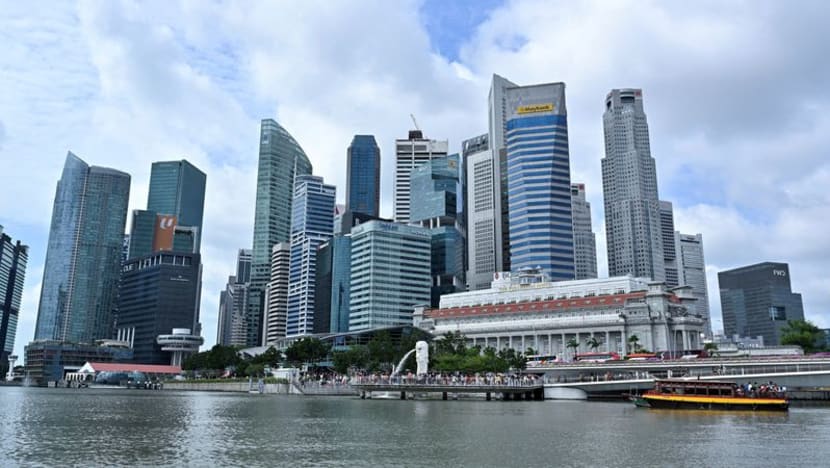Singapore core inflation remains at 3.1% for third consecutive month

A view of the skyline in Singapore. (File photo: REUTERS/Caroline Chia)

This audio is generated by an AI tool.
SINGAPORE: Singapore’s core inflation stayed at 3.1 per cent in May, unchanged from April and March.
This is slightly higher than the 3.0 per cent forecast by a Reuters poll of economists.
An increase in services inflation was offset by lower electricity and gas, and retail and other goods inflation, according to data from the Monetary Authority of Singapore (MAS) and the Ministry of Trade and Industry (MTI) on Monday (Jun 24).
On a month-on-month basis, core inflation - which excludes accommodation and private transport - rose by 0.1 per cent in April.
Meanwhile, consumer price index, or headline inflation, went up to 3.1 per cent year-on-year in May, from 2.7 per cent in April, driven by higher private transport inflation.
On a month-on-month basis, headline inflation increased by 0.7 per cent.
Electricity and gas inflation fell from 7.6 per cent to 6.9 per cent due to a smaller increase in electricity prices.
Retail and other goods inflation dipped from 1.6 per cent to 1.5 per cent. MAS and MTI attributed this to a slower pace of increase in prices of personal effects, as well as alcoholic beverages and tobacco.
Services inflation increased slightly - from 3.5 per cent to 3.6 per cent in - on the back of a "larger increase in holiday expenses and a smaller decline in airfares".
Food inflation remained at 2.8 per cent, reflecting stable food services inflation, even though non-cooked food inflation registered a "modest increase".
Accommodation inflation eased slightly from 3.5 per cent to 3.4 per cent due to smaller increases in housing rents.
OUTLOOK
Global prices of energy and most food commodities have remained relatively stable in recent months, said MAS and MTI. The costs of Singapore’s imported intermediate and final manufactured goods have also continued on a broad decline.
Inflation for services associated with overseas travel has remained firm but should moderate further over the course of the year as the air transport and hospitality sectors around the world gradually restore supply.
"MAS core inflation is expected to stay on a gradual moderating trend over the rest of the year and step down more discernibly in Q4 2024, as import cost pressures continue to decline and tightness in the domestic labour market eases," said MAS and MTI.
The authorities also expect private transport inflation to moderate from last year amid the larger projected COE supply in 2024.
Accommodation inflation should also continue to ease as the supply of housing units available for rental increases over the course of the year.
MAS and MTI projected both headline and core inflation to average 2.5 per cent to 3.5 per cent in 2024.
"Excluding the transitory effects of the 1 per cent-point increase in the GST rate to 9 per cent, headline and core inflation are expected to come in at 1.5 per cent to 2.5 per cent."
They warned that risks to the inflation outlook remain as fresh geopolitical shocks, adverse weather events, and further transportation disruptions around the world could put upward pressure on global energy and food commodity prices, as well as shipping costs.
"Domestically, a stronger-than-expected labour market could also lead to a re-acceleration in wage growth," said MAS and MTI.
"Conversely, an unexpected weakening in the global economy could induce a greater easing of cost and price pressures."












